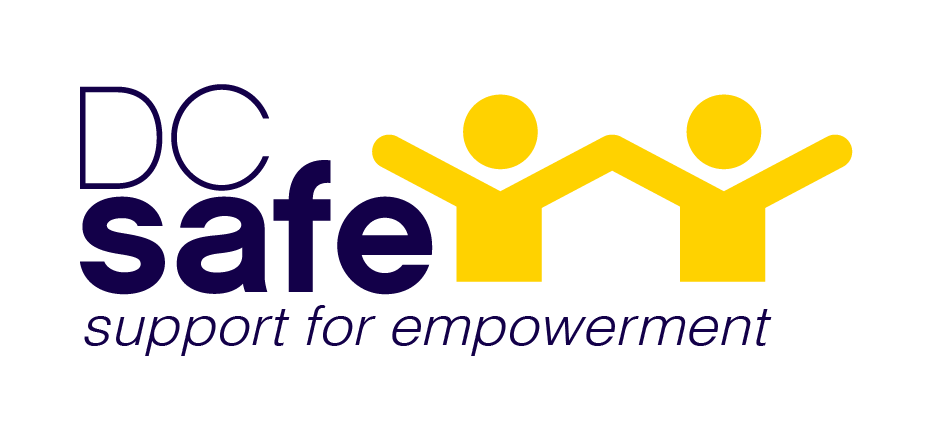Recognizing Sexual Assault Awareness Month
Written by Kathryn Storm, Volunteer
Trigger Warning: Sexual Assault, Rape, Domestic Violence
April is Sexual Assault Awareness Month (SAAM). We want to use this time to help educate our community on sexual assault prevalence and prevention, and the resources available for survivors and allies in DC.
Sexual violence and gender-based violence is undeniably a public health crisis in this country. Statistics show that 40 to 45% of women in abusive relationships will be sexually assaulted during the course of the relationship, and furthermore, 10 to 14% of married women will be raped at some point in their marriage. Unfortunately, marital rape and other forms of sexual violence often go unreported. The U.S. The Department of Justice estimates that only 230 of every 1,000 sexual assaults are reported (roughly 1 out of every 4), so understanding the full scope of the issue is difficult.
Last year, DC SAFE served 102 sexual assault survivors. However, given the under-issue of reporting, it’s probable that as many as 3,278 (or 45%) of the 7,284 clients we served last year had also experienced some form of sexual violence in the context of their abusive relationship. We are proud to partner with the DC Forensic Nurse Examiners (DCFNE). DCFNE provides 24/7 forensic nursing care to survivors of sexual assault and domestic violence. We are excited to share space with DCFNE in our new SAFE Space Crisis Shelter, where they will offer on-site forensic exams. Together we will work to lessen the impact of trauma and allow families to begin to heal sooner.
We all have a part to play in ending sexual assault. Understanding what consent means is an important place to start. Consent is a continuous conversation between sexual partners that should be revisited often. Prior to engagement, partners must understand the sexual activities that each partner is comfortable with. Sexual violence is a gross disruption of the process of consent. Faced with the threat of violence, a person cannot freely give consent. The abuser is placing the victim in a position where they may feel that they cannot say no without experiencing some form of retaliation.
The physical and mental effects of sexual violence can vary. Aside from physical injuries, survivors can experience sexually-transmitted diseases or infections, HIV exposure, or unwanted pregnancy. Many survivors also experience sleep and eating disorders, anxiety, depression, and PTSD. In cases of intimate partner sexual assault, survivors experience even higher rates of depression and anxiety than women who were sexually and/or physically assaulted by a non-intimate partner.
COVID-19 has made it even more difficult to spot signs of abuse, even though studies show that violence has increased inside the home. Creating a supportive environment for survivors, despite social-distancing measures, is what SAAM is all about. It is an opportunity to address sexual assault as a community. Knowing what resources are readily available can save a life. For more information on supporting survivors during COVID-19 and SAAM, The National Sexual Violence Resource Center has a Six Step Guide on ways that you can support survivors online.
Works Consulted:
RAINN Safety & Prevention Tips
Gosselin, D. (2019). Heavy Hands: An Introduction to the Crimes of Family Violence. 6th ed. New Jersey: Pearson Prentice-Hall, Inc.

